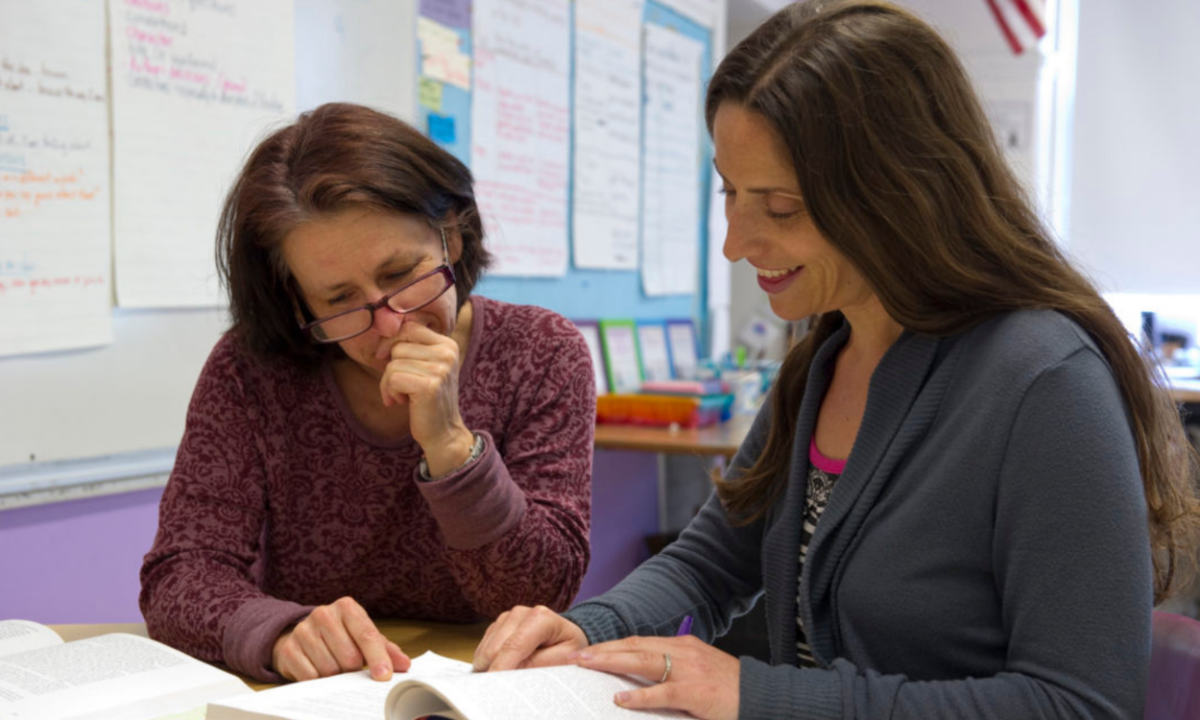“Coaching done well may be the most effective intervention designed for human performance. “
-Atul Gawande
If you are a coach, teacher leader, principal or other administrator, you may not fully realize how your language impacts each educator in your school community. The language you use every day can shape the teachers’ identities as vital, contributing members of the school team, who are individually and collectively responsible for their own professional learning and supporting the learning of colleagues.
A Coaching Stance
How do you see yourself in relationship to your colleagues? You might want to think about how your colleagues would describe you as a coach. When you see yourself as a thought partner with your colleagues, you represent yourself as an equal not a judge. You think together and problem-solve with your colleagues and view them as co-learners, co-problem-solvers and co-inquirers. Though you may have different roles, you value learning from each other and your language shows the respect for the knowledge and experience each of you brings to the conversation.
The Power of Your Language
I never fully realized how much impact my selection of words or phrases meant to how my colleagues perceived my coaching role. I learned that my carefully chosen words promoted the kind of inclusive, respectful culture of professional learning we all wanted.
Your language represents your thinking. Think about your language and its impact. Your language:
- Communicates your stance as a coach
- Sets the tone for the learning culture in your school
- Fosters a school culture of collaboration, inclusiveness, problem-solving, self-reflection, and analytic thinking
- Promotes the teacher’s sense of agency and continuous professional growth
- Influences how teachers see themselves and you as their colleague
Think About This Language
Read the following language samples and think about how each comment or question shows what the coach values in the conversation with a colleague. Also think about how the teacher may view the coach’s role given the language the coach used.
- How did our time together help you think about your teaching?
- Here’s what I think you are saying- is this correct?
- Let’s think about that together.
- You observed the children’s challenge in thinking more deeply. What do you think is in the way?
- You asked me to notice the children’s ability to take words apart quickly. What were you noticing as they read today?
- Based on our conversation today, what will be your teaching goals for the next few days? Do you want to plan some of that together?
- How might I be helpful to you in your teaching of this small group?
- Could you talk me through your thinking about the children’s oral reading and your teaching points?
- You expressed concern about the children’s ability to hear each sound in sequence. Now what are you thinking?
Hopefully you noticed how the coach valued the teacher’s thinking and treated the teacher as a thought partner. The coach encouraged the teacher to analyze the teaching decisions and their effect, showing confidence in the teacher’s knowledge. In addition, the coach prompted the teacher to articulate the rationales for the teaching decisions and offered support in ways the teacher selected.
From these examples you can see the coach’s stance and tone and the coach’s effort to co-inquire about teaching and learning. I hope you will think carefully about language and its power in your interactions with your colleagues.

Do you Want to Learn More?
We offer several ways to increase your coaching expertise. Join us asynchronously for our in-depth course Acquiring Coaching and Teacher Leadership Expertise. Prefer real-time learning, either online or in-person? Check out Effective Literacy Coaching. And don’t miss our 34th annual Literacy for All conference to learn from coaching experts Stephanie Affinito, Linda Murphy and others!





